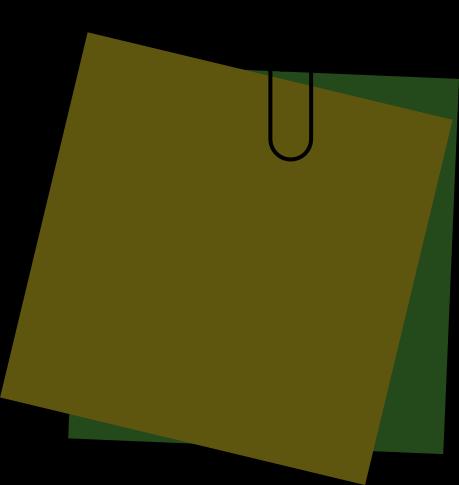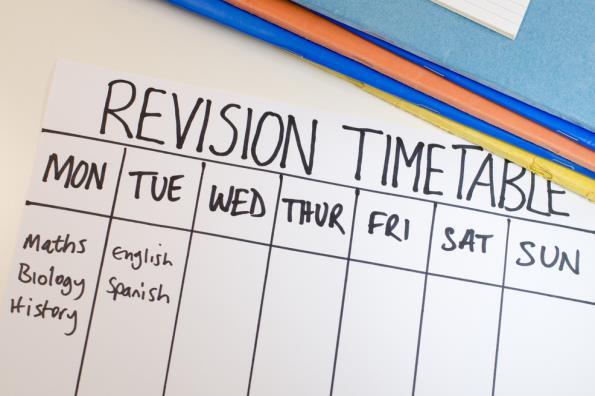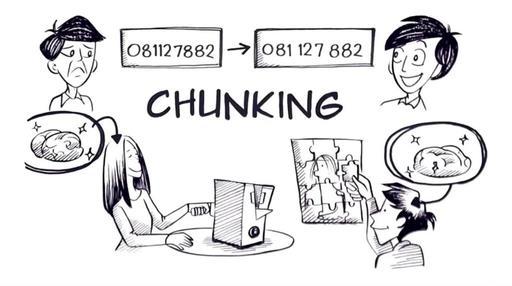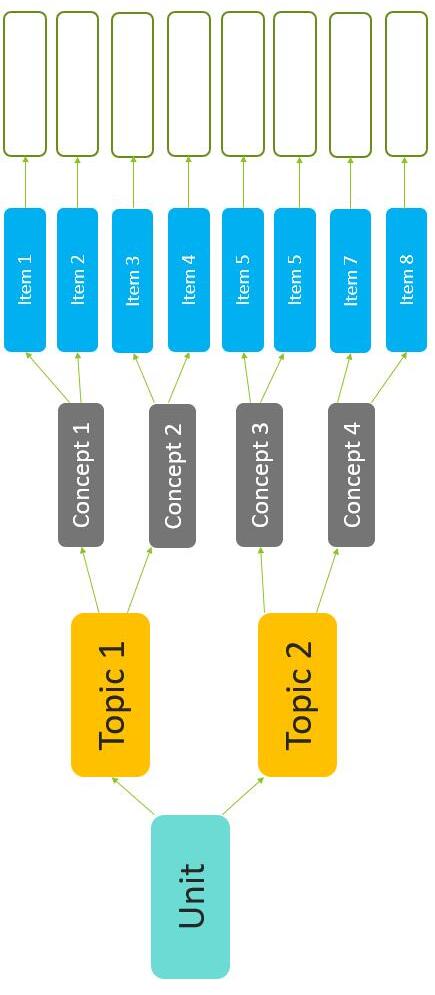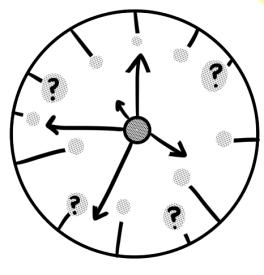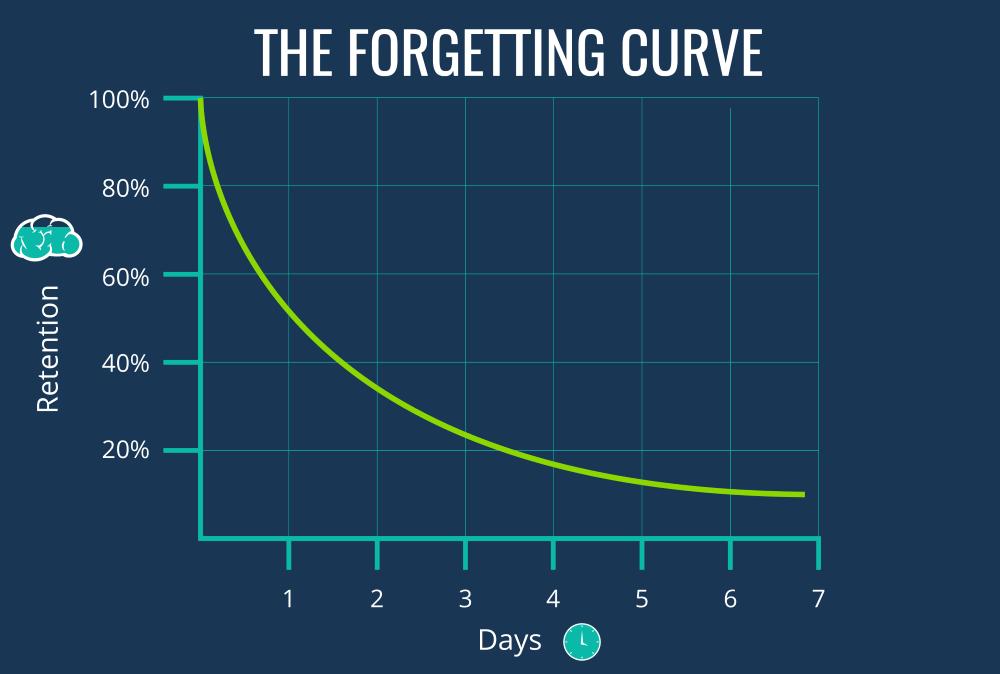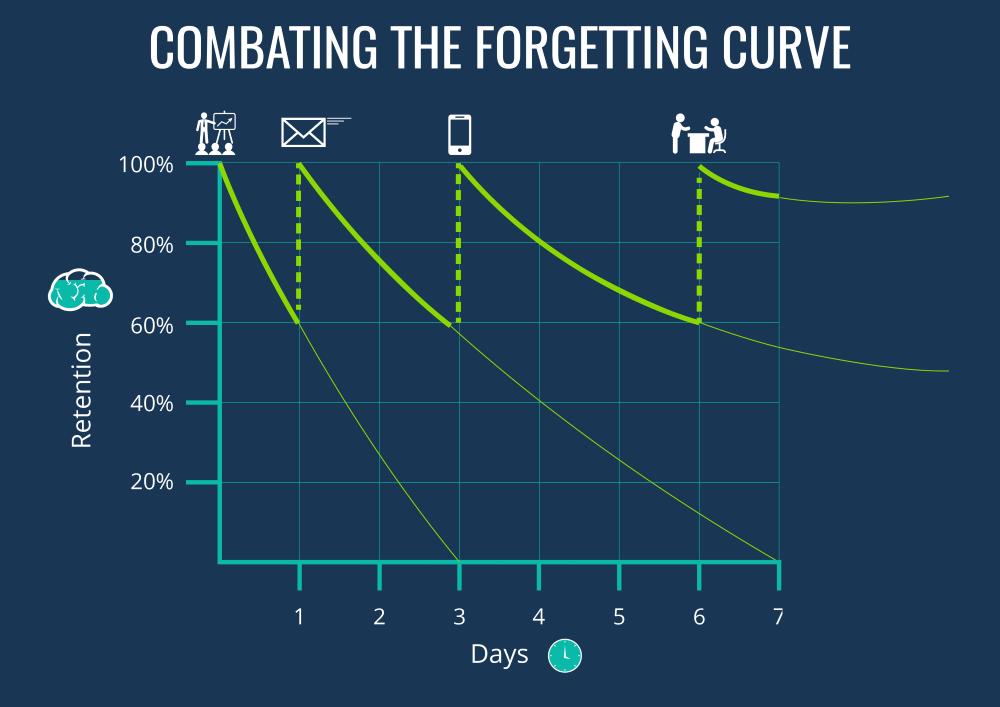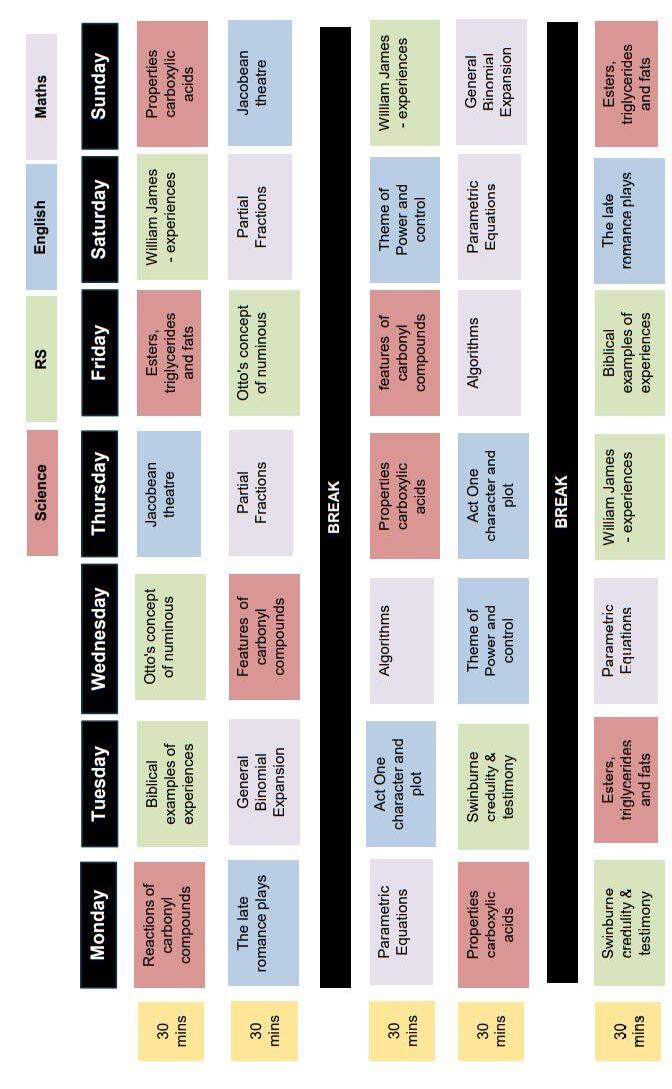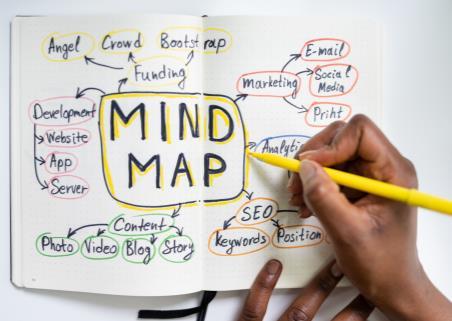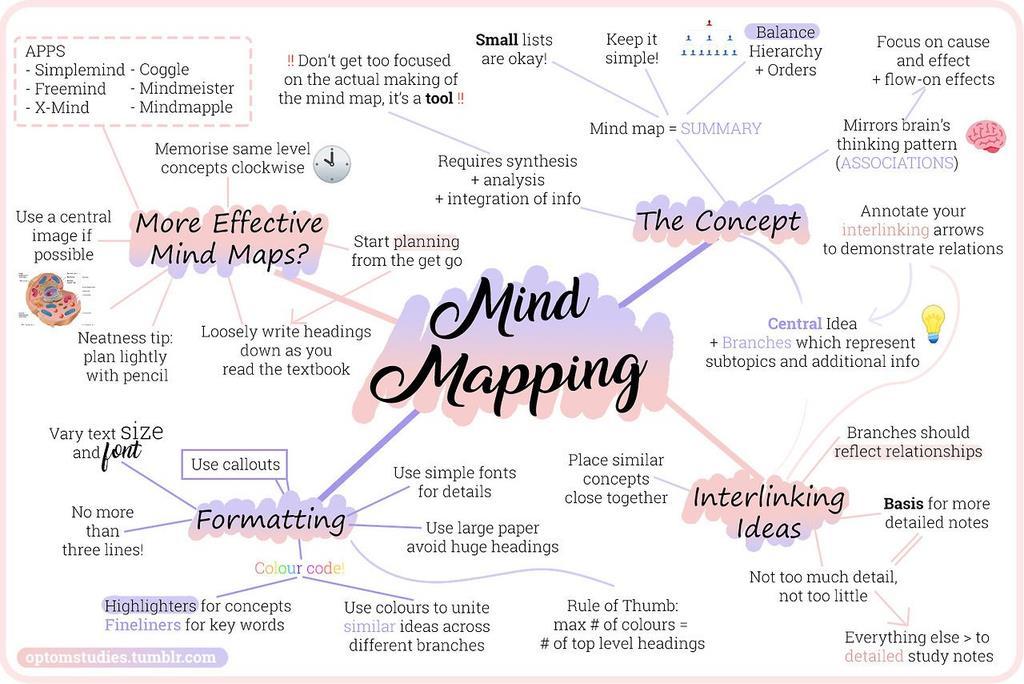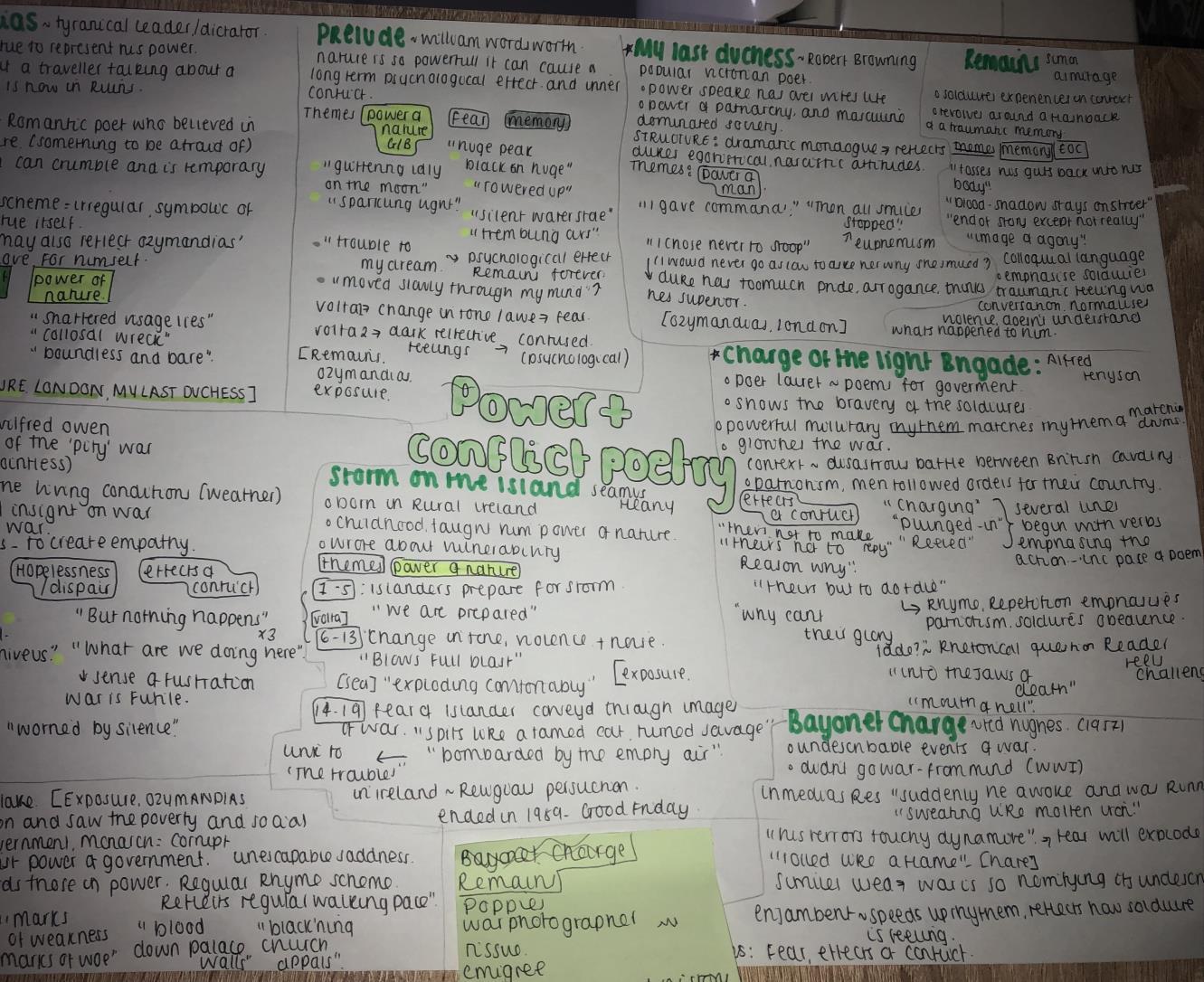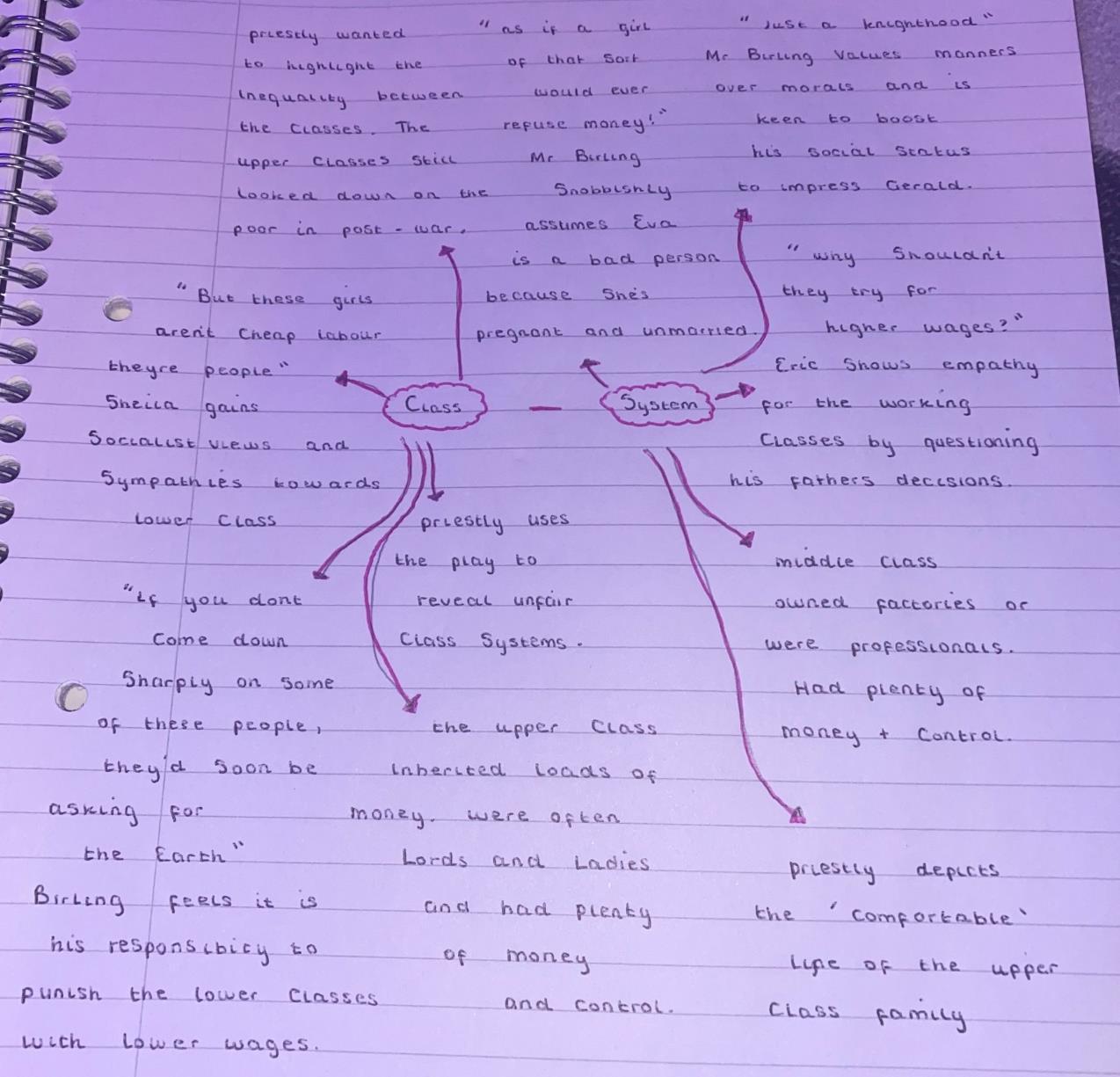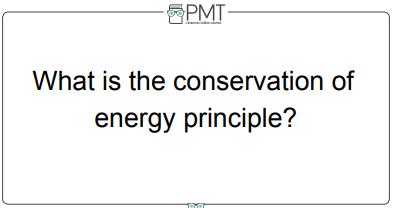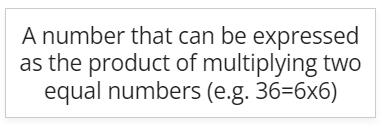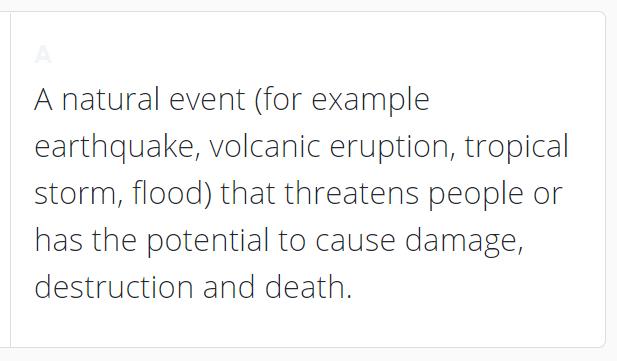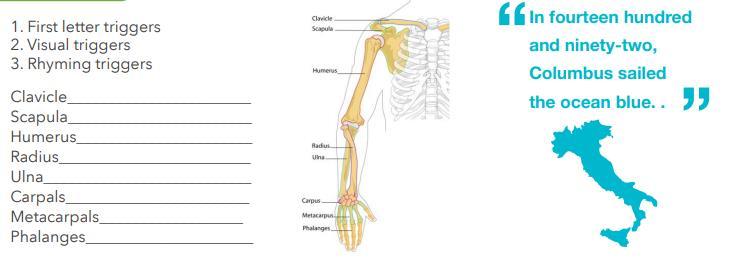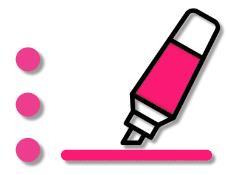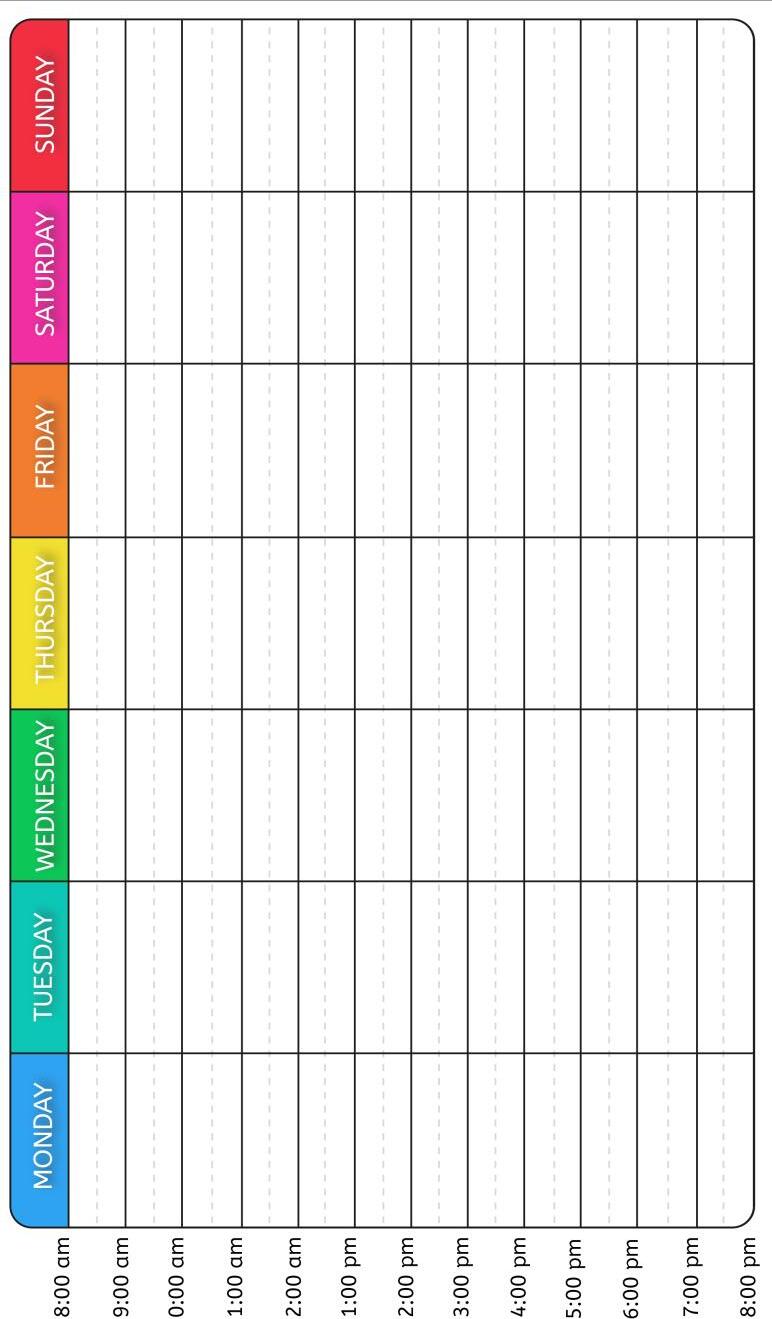Revision is important because it helps you remember facts, figures and topics that you were taught some time ago. If done correctly revision will increase your confidence and reduce anxiety around exams.
02
Units, Topics & Concepts
Ensure that you have a clear understanding of Units, Topics and Concepts for each subject. Ask your teachers if you do not have this.
Study Timetable
Planning and Organisation will make you feel in control.
Reasons To Plan
• You know you'll have time to cover everything
• You won't forget any topics
• You can prioritise tricky subjects
• It reduces stress
• It's more efficient
Timetable
A revision timetable and a revision list will help you schedule your revision and see your progress. You can find sample timetables at the back of this guide.
Chunking
Is breaking down large amounts of information into smaller, more manageable, parts. Most of us are able to store only about four to seven different items in our short-term memory. One way to get past this limit is to use the technique called chunking. By grouping several items into one larger whole, you'll be able to remember much more.
The Chunking Process
1. Break down larger amounts of information into smaller units.
2. Identify similarities or patterns.
3. Organise the information.
4. Group information into manageable units.
important dates. As you become better at remembering larger chunks of information,
Did you know? “prompt” term memory.
What is Spacing?
• Spacing is a revision technique which is all about spacing out your revision so you don’t overwhelmed • It introduces intervals into your revision sessions and spaces out the days which you use to revise for topics
Create the Perfect Revision Plan
1. Organisation: determine where you need to focus your time – e.g. which subjects, topics, what you know, what you struggle with etc.
2. Planning: map out what you are going to revise and when. Use a timetable or revision planner to do this. Choose a mixture of a subject’s topics to focus on each day to make sure you are spacing them out.
3. Review: build in different revision techniques to help you do some quick 5–10 minute reviews of your topics throughout your revision plan - e.g. reading through notes, highlighting information, making post-it notes.
4. Transformation task: these are 30 minute activities to help you take in information - e.g. writing summary sheets, flashcards or mind maps for topics.
5. Practice testing: test yourself on the area that you have reviewed, such as with quizzes or by testing yourself with a friend.
6. Exam questions: complete an exam question or questions on the area you have reviewed and mark this yourself, using a mark scheme
To commit something to memory, it takes time and repetition
Why do a mind map?
It is an alternative way to make notes because your brain likes colour and pictures which help your memory. A study in the US gave participants 10,000 images to look through. They then added 10 other images. 95% of participants could identify the foreign images. Conclusion? Pictures stay in your brain.
Using Mind Maps to Revise
Use your class notes to create down only the key information. regularly. Pin them up see you
Flashcards are a simple yet effective revision technique.
• Flashcards are postcard sized cards with a question or prompt on one side and the answer or information on the other.
• They are a good way to test yourself and to find gaps in your knowledge.
• They can be used for:
⚬ Diagrams
⚬ Key terms
⚬ Formulae
Why flashcards can help you learn creates
stronger connections for your which
Research shows that using flashcards can enhance longterm learning and help you to memorise facts quickly.
All flashcards start off in stack 1. Each card you answer correctly goes into box 2.
If you give the wrong answer the card stays in box 1.
1. 2.
When you review cards in box 2, if you still get it right you move the card to box 3 and so on until all cards are in box 4. .
3.
If you get a card wrong in any box, it goes back to box 1.
4.
Use them to remember important points.
❑ Give a ‘lecture’ on the topic without the notes. This can be to a friend, parent, carer or even an empty room! The objective is to find the point at which the student stops talking. That is the
❑ When the student stops, they have discovered their limit and
❑ Great for those who are good at kidding themselves about how
explaining and describing what you are revising with as many details as possible. You are looking for answers to why and how things work, and you are looking for connections between the material and
When you elaborate, you focus on between the material (what you are experience and knowledge (already term memory). These details and connections create “hooks” to help you remember the
learning and remembering to form a network of links between knowledge detailed information and use it when
Geography
•Explain the causes of coastal erosion
Biology
•What is chlorophyll? What role does it play in photosynthesis?
•Explain why plant cells convert glucose to starch for storage.
•Explain how destructive waves erode the coastline.
•Compare erosion to other geographical processes.
English
•Why do you think Shelia respects Gerald more after he has told his story? What does this suggest about Shelia’s character?
Do you think Arthur would have reacted in the same way if Shelia had been having an affair rather than Gerald?
If you’re feeling overwhelmed by revision help is available.
Exercise is important






